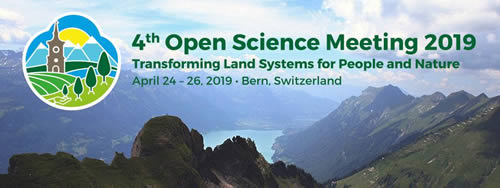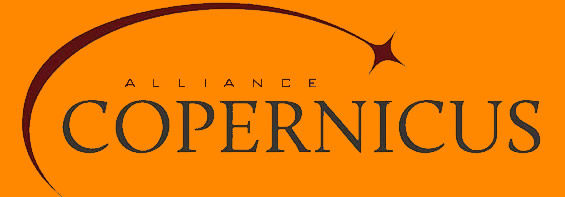 Three out of five project proposals submitted by University of Bern students to the Swiss government’s U-Change programme were approved and will start as of this summer. In addition, the University of Bern awarded three new teaching grants to lecturers from different faculties who wish to integrate sustainable development into their courses. Finally, over 600 participants met at the 4th Open Science Meeting organized by the Centre for Development and Environment at the University of Bern. The OSM 2019 focused on “Transforming Land Systems for People and Nature”, under the lead of the Global Land Programme (GLP).
Three out of five project proposals submitted by University of Bern students to the Swiss government’s U-Change programme were approved and will start as of this summer. In addition, the University of Bern awarded three new teaching grants to lecturers from different faculties who wish to integrate sustainable development into their courses. Finally, over 600 participants met at the 4th Open Science Meeting organized by the Centre for Development and Environment at the University of Bern. The OSM 2019 focused on “Transforming Land Systems for People and Nature”, under the lead of the Global Land Programme (GLP).
Three University of Bern students awarded U-Change project funds
The University of Bern is proud to announce that three out of five Bernese student projects were approved for funding by the Swiss government-funded U-Change programme. The awardees are Leonie Schmid (Podcast for Students – by Students), Samuel Meier (Achieving Sustainability through Transparency), and Maria Lissek (Gender and Sustainability). The U-Change programme, entitled “Student Initiatives for Sustainable Development”, aims to support extracurricular projects proposed by students at Swiss tertiary education institutions. The programme is coordinated by td-net (http://www.u-change.ch/en/sd-universities/U-Change-2017-20.html)
Teaching grants support integration of SD into multiple disciplines
As part of its efforts to mainstream sustainable development into teaching in all study programmes, the University of Bern has awarded three new teaching grants to lecturers who want to innovate and integrate sustainable development into a course in their discipline (http://www.bne.unibe.ch/services/teaching_grants/index_eng.html). In the first round of awards, grants went to four different teaching projects in the fields of management, astronomy, post-colonial literature, and gender studies: http://www.bne.unibe.ch/dienstleistungen/projektfoerderung/laufende_fne_projekte/index_ger.html. In the second round, four more grants were awarded to lecturers from human geography, theology, and marketing. In the third and current round, the disciplines involved are: musicology, social sciences, and geography (urban and regional planning). The grant programme is proving to be an effective way of overcoming the limitations in time and resources that lecturers often mention as problematical. But it is not a panacea.
Land system science community meets in Bern for the 4th OSM
The International Project Office of the Global Land Programme (GLP) is currently hosted by the Centre for Development and Environment (CDE) at the University of Bern, Switzerland. The GLP is a Global Research Project of the Future Earth initiative. The land system science community is organized within the GLP as an interdisciplinary community of science and practice fostering the study of land systems and the co-design of solutions for global sustainability. It represents the largest international research network in this field. Every 2-4 years, the GLP organizes an Open Science Meeting to provide space for the land system science community to meet and debate on issues relevant to Agenda 2030. Participants discussed issues defined under three broad conference themes presented as questions:
- What are the visions for the planetary land system? Land as the nexus for addressing global challenges.
- What do people want from land? Navigating the trade-offs and fostering synergies in land systems.
- How do we support transformation? New frontiers in studying and governing land systems
By the end of May, podcasts of keynotes and other interventions will be made available on the conference website. Meanwhile, read the interview conducted with the executive officer of the GLP’s International Project Office, Ariane de Bremond.
